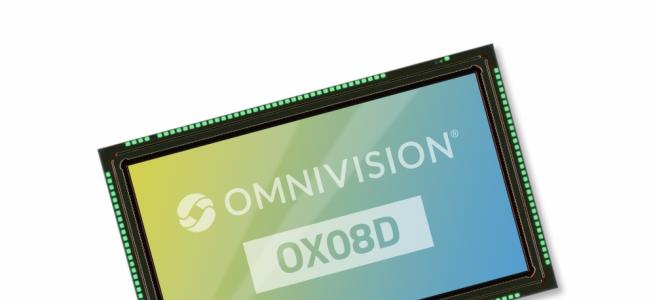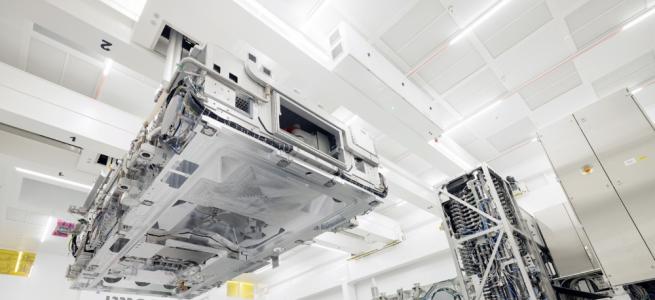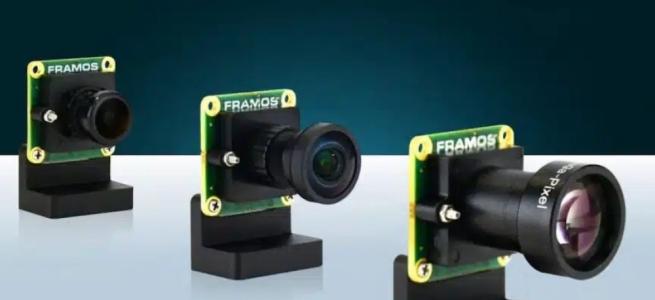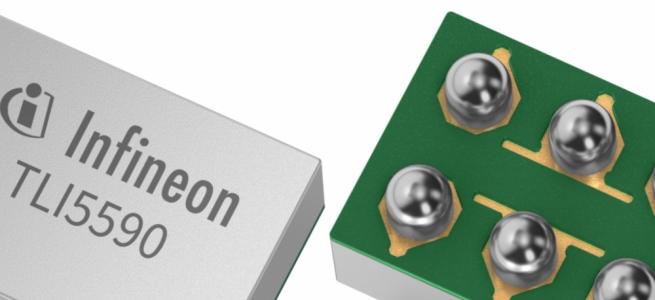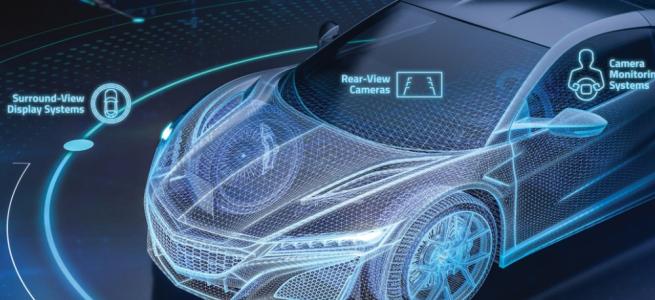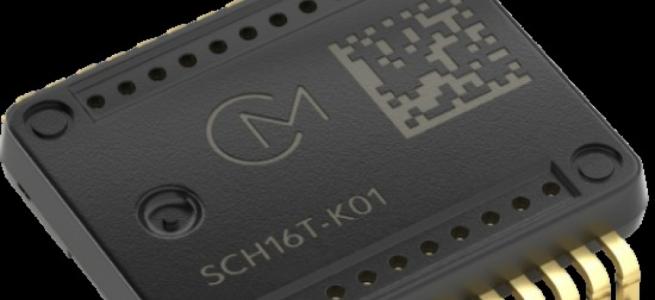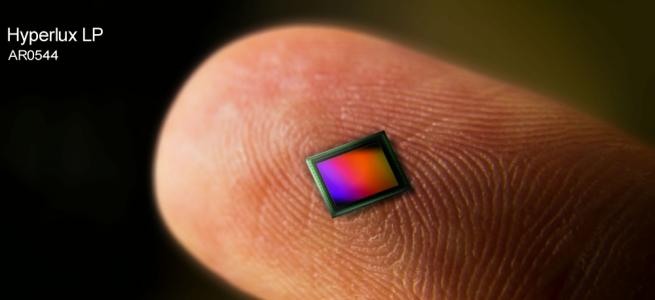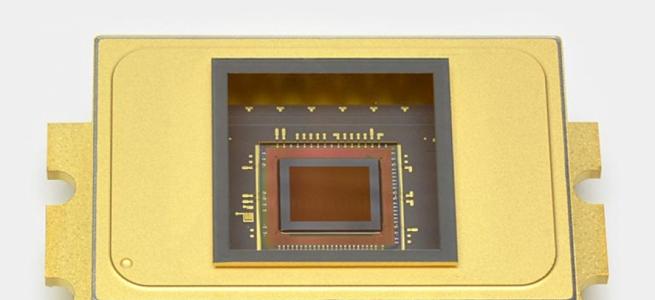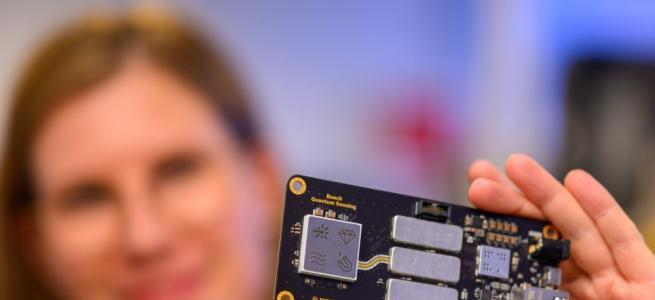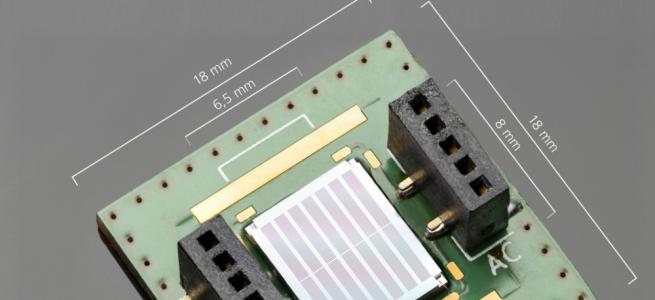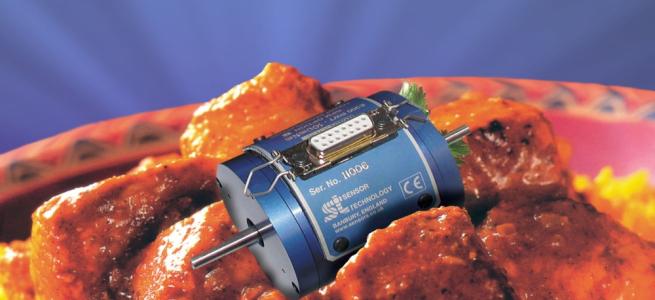Melexis introduces MLX90427 position sensing for steer-by-wire
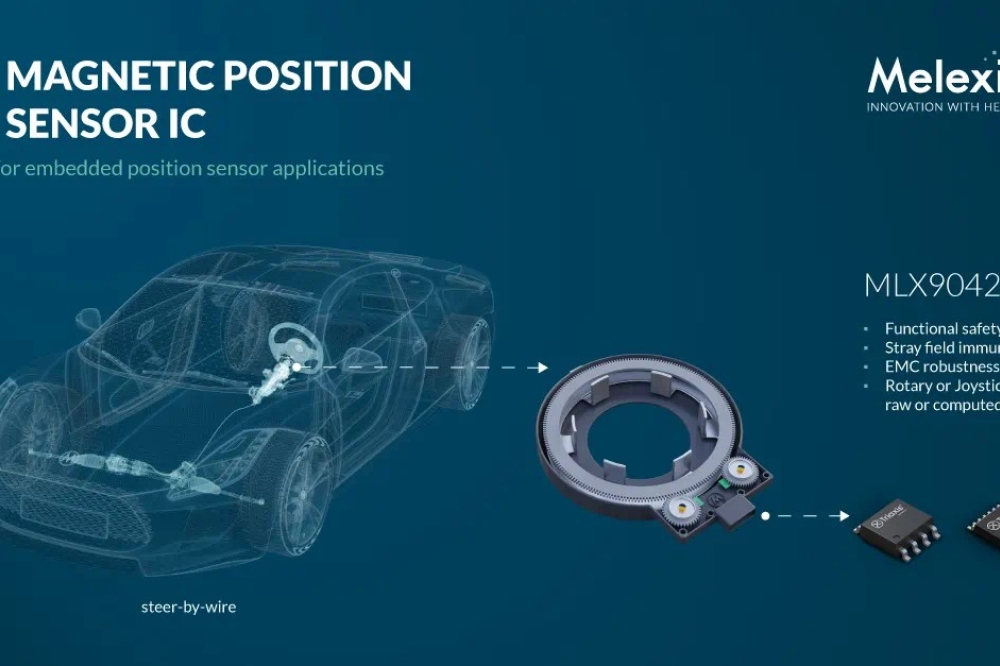
Melexis introduces the MLX90427 in its magnetic position sensor portfolio. The product is tailored for embedded position sensor applications requiring high functional safety levels. Next to offering customer stray field immunity and EMC robustness, the cost-effective MLX90427 features an SPI output with 4 distinct modes. It includes rotary, joystick, and rotary stray field with internal angle computation, alongside one mode for raw data output. It is ideal for steer-by-wire applications.
Backed by Melexis’ extensive application and functional safety knowledge, the MLX90427 is a robust and cost-effective solution. Its high accuracy and multifunction operation make it perfectly suited for the next generation of vehicle control systems.
The MLX90427 is designed for embedded position sensor applications and features a high-speed full-duplex SPI output for communication with a master microcontroller and a 14-bit resolution output. Allowing for simple system integration, the MLX90427 is 5V and 3V3 application compatible and features a wide operating temperature of -40oC to 160oC. The implementation of built-in self-diagnostics ensures swift fault reporting, which enhances the safety of critical systems.
Integration and Communication
The MLX90427 has the unique ability to transition seamlessly between four distinct operating modes. These modes include a standard rotary mode with two performance ranges, a joystick mode for XYZ 3D position sensing applications, and the 360-degree stray field immune mode for continuous rotational feedback in noisy environments. Within a vehicle, this enables the IC to be utilized in various applications, such as steering, gearbox shifting, and wider human-machine interfaces (HMIs) like infotainment control knobs, thereby streamlining vehicle design procedures. Featuring AEC-Q100 qualification (Grade 0) the MLX90427 is inherently reliable and is an ISO26262 ASIL C SEooC (safety element out of context) supporting up to ASIL D system level integration. In safety-critical applications like steering columns, the MLX90427 with its excellent stray field immunity and EMC robustness, can be deployed alongside sensors utilizing differing sensing technologies, such as the inductive sensing MLX90513, to attain the highest levels of functional safety through heterogeneous redundancy.
Operation and Safety
The MLX90427 is Melexis’ next-generation magnetic position sensing IC. Drawing upon Melexis’ extensive expertise in automotive Hall effect sensing, this product has been specifically engineered to meet the current and future technical requirements of the automotive industry. At the core of the MLX90427 is the Triaxis hall magnetic sensing element which exhibits sensitivity to three components of flux density (Bx, By, and Bz) applied to the IC, allowing for the accurate detection of movement of any magnet in its vicinity. This is supported by an analog-to-digital converter (ADC), a robust digital signal processor (DSP) for sophisticated signal processing, and an output stage driver for SPI signal output.
With the automotive market increasingly emphasizing the digitization of control systems to facilitate vehicle electrification and advanced autonomous capabilities, the demands placed on sensors are evolving. For innovations like steer-by-wire systems, where there is no mechanical linkage between the steering wheel and steering rack, position sensors are a critical component that must exhibit exceptional reliability, functional safety, and accuracy. The requirements for sensors in electric vehicles are heightened, necessitating excellent EMC robustness and stray field immunity. Simultaneously, solutions must be cost-effective and easy to integrate.
“Melexis has a long-standing reputation as the leading provider of sensors for safety-critical automotive systems, especially in areas like steering wheel position feedback,” stated Karen Stinckens, Global Marketing Manager Position Sensors at Melexis, she continued, “The MLX90427 is built from our previous success and represents not just the next step in automotive position sensing, but also a viable proposition for wider applications thanks to its advanced functionality and price point”.






